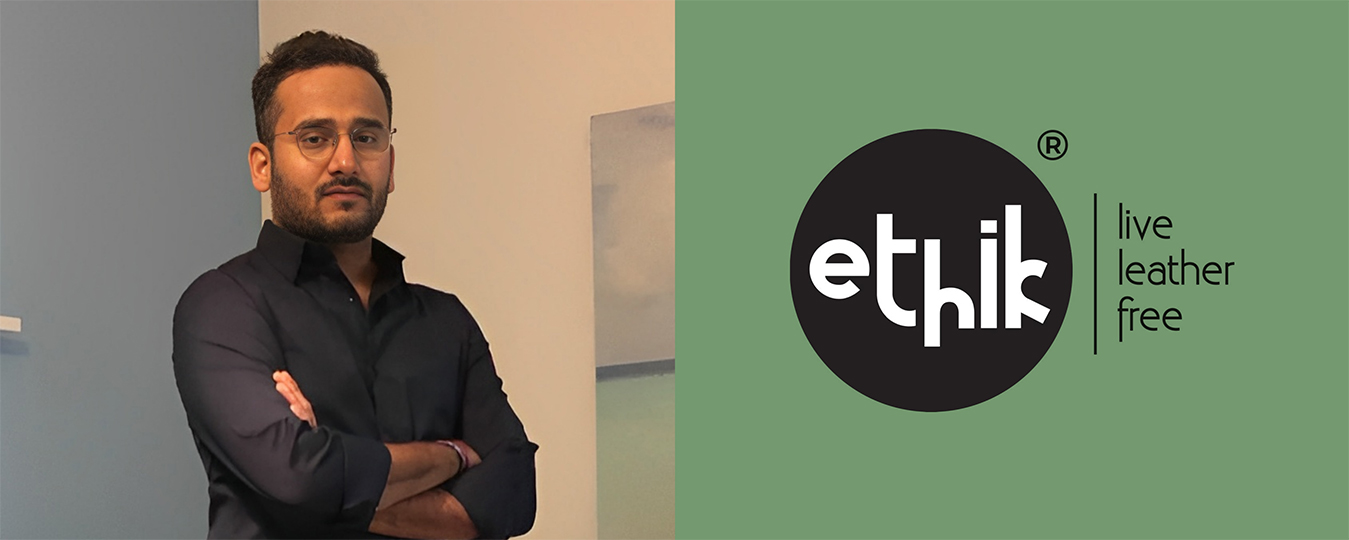In conversation with Bharat Ranka about challenges and opportunities of running an environmentally-conscious business
In the age of fast fashion, made with toxic yet cheaper alternatives, Bharat Ranka, co-founder of Ethik, is introducing a no-compromise solution for being fashion-forward and environmentally conscious. While one might assume that a vegan, cruelty-free option gets embraced in a heartbeat, the reality is slightly different.
We’ll explore the hesitance towards the idea and why the Indian demographics matter in changing how we tread over the world. And in all of this, how Ethik is sowing fertile ground for more ethically and environmentally conscious alternatives.
Facing the ground reality
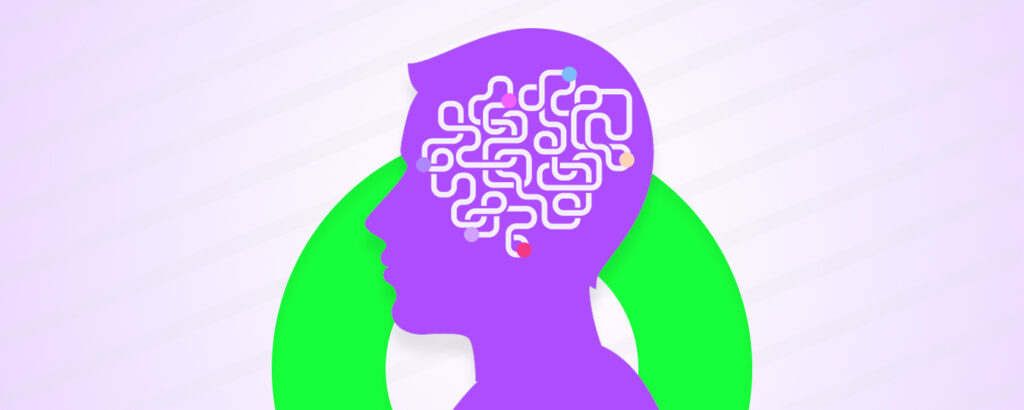
Understanding the psychology of your consumers is the first and foremost thing that every business person should learn. Being candid about his experience, Bharat shares:
“I will say it is more difficult to convince people that the earth is dying, we need to save our earth. So this is not an easy task to do. I would say this is a very hard task to convince people.”
He boils it down to three main principles that shoppers look for, regardless of a product being sustainable or not.
“See, I’ll be very honest with you. There are honestly very few people who care about whether something is leather or non-leather, whether something is sustainable or not sustainable, whether something is earth friendly or not. I think primarily what people still care about is the fundamentals. Does it look good? Does it feel good? And what’s the kind of hole that it runs in my pocket? I think these three are the main fundamentals that anyone is looking for while making a purchase decision.”
“So, to be very honest, it’s not like the market for sustainable products has really shot up big time. Of course, it is growing because, with more education, awareness and knowledge, people do tend to start questioning their choices. And when they start doing that, there’s a market that opens up for products like that.”
The Indian demographics and the idea of sustainability
There is a certain air of pessimism when it comes to believing that one can make a change. Towering that challenges comes another one.
“An ordinary person likely thinks, ‘how much of a difference can one person make? I have another 60 years to live and the earth is not ending by then. So I’m going to worry about the next two generations that are coming after me. So 150 years is not going to be that bad, right?’ So you cannot expect 900 poor people to think about the future.”
Digging deeper, he touches upon a glaring truth. If eco-friendly isn’t going to last for longer than what’s cheaper and familiar, then this industry will be limited to only those who can afford these products on repeat. It is imperative that the solution becomes sustainable as well.
“Let me give you an example. You pick up a pair of shoes that are non leather, but that are made from cheap PU or red zone. They will last you for six months to twelve months. Alright? And I have seen with my own eyes people wearing our shoes for the last four to five years. Again, we are using microfiber that will last people longer. So the idea is to give an upgrade in quality which will increase the life as well.”
“80% of the Indian population is actually using Rexine and PU. I’ll throw up an interesting factor. One out of every three footfalls in the world is found in India. So India accounts for 33% of all the footwear in the world. So that’s also a huge number.”
“You know, this revolution has happened in India.It is still something that is in its initial stages india.This is something that has only been started working in the last five, seven years that is becoming mainstream india. People are raising, you know, like a sustainable environment, sustainable use, and sustainable products.”
“Definitely the time is right. India is still a small market in this context. Europe and us are really leading the way when it comes to accepting and embracing the sustainable culture. But the fundamentals remain the same. The biggest market is for the right product at the right price. Irrespective of what it’s made of.”
Sustaining the sustainability business
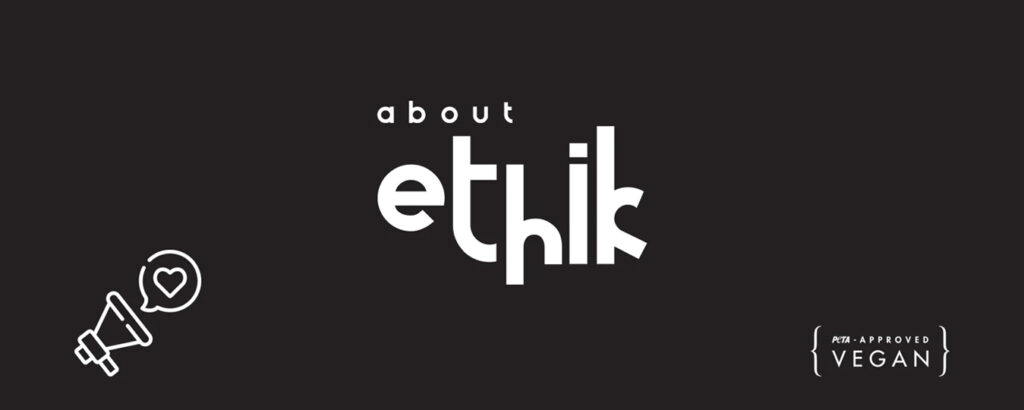
Brands like Ethik are becoming a beacon of hope to revolutionize consumer behavior by imbibing it with consumer responsibility. However, the onus of revolution always lies on the manufacturer rather than the consumers. And when that happens, it will invariably happen at a large scale. Course-correcting his approach, Bharat shares his experience:
“There’s a word of caution here. Eco friendly has to go hand in hand with durability. See, if you’re going to make products just from eco-friendly materials, but if they’re not going to last too long, then anyway, your carbon footprint is increasing.”
“Our shoes are made from this material, which is called microfiber. Now, microfiber is made from recycled plastic bottles, okay? So although it is non leather and cruelty free, it is not eco friendly. It would take a lot of time to decompose, But it is not derived from animals. So at least you’re solving one part of the problem.”
“Now, this was something that my partner, Pankaj, realized early on. He realized that we cannot continue making products from microfiber. The future is more sustainable. So the transition for our products has already happened. Our wallets are now completely sustainable, although our shoes are only cruelty free at this point in time.”
Emphasizing on how Ethik has made this human experience better, he tells:
“The difference that Ethic has made to more than 8000 consumer lives is that we have erased from their minds that there is no alternative to leather. Seven out of ten consumers come to us for repeat purchases. How is that possible? It’s only because they realize they don’t need to go back to leather now.”
“We have given people the reason to be able to choose better. See, you can only compare apples to apples, right? You cannot compare apples to grapes. Now, what happens when you are offering them an apple or an apple without compromising on the quality, the look, feel, touch and taste? And I think fundamentally we have given people a product in their hands which will make them question that when this thing looks and feels like leather has the same premium texture and finish, why am I going to wear something that is derived from an animal -a voiceless animal, that could not even defend itself?”
Greenwashing products and inflated prices
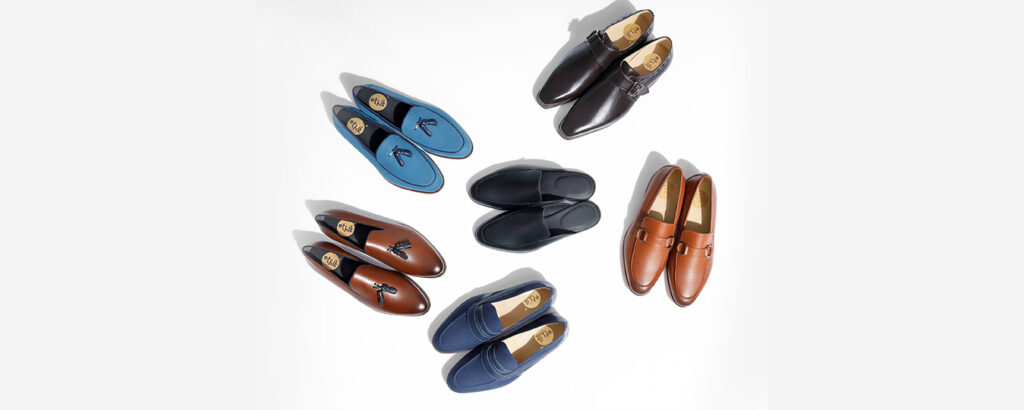
Often, brands and labels that advertise being “Green” hardly have any green element in it. In the wake of environmental-consciousness, consumers try their best to choose environmentally-friendly products. However, that would mean transparency from the labels and increased consumer awareness to know who is advertising green and who is really producing green.
Reading through each ingredient, composition of material, resource and process would take some time from the consumers to research. Many brands know that most people don’t take the effort to read the label. Slapping a tag of ‘Environmentally-friendly’ does the trick and relieves people of their consumer responsibility off their consciousness.
“You’re not sure if they’re using sustainable practices in manufacturing. You don’t know if your laborers are getting paid well, good working conditions or not, how these fabrics are derived, whether any kind of hardships are being experienced by someone. And I would say that even consumers get away with that, like, ‘oh, I’m doing something for the environment by buying sustainable things.’ But they don’t know what exactly sustainability is. The brands just market themselves as sustainable.”
“But the good thing is, at least in our industry, people are very open to giving out the trail on their website. They talk about sourcing, they talk about manufacturing because that’s the entire game of sustainability. So I think there is still better transparency. But I think a lot of brands get away with it.”
Circling back to his own business ethics and practices, he draws a clear picture of how Ethik disowns the idea of greenwashing and how they are different from the rest. He also reveals how branding changes the perspective of people over pricing.
“We call ourselves the mass premium brand because it’s the material we use, the experience we give and the number of years that something would last. People based on their idea of how a product should be priced automatically give us the tag of being expensive if you don’t. And that’s where branding plays a very big part. Once you’ve got a few big names backing you’ve got endorsements coming your way. A lot of popular influencers are talking about your brand”
“Then it becomes a vanity thing. But I think brands also have kind of diluted this space by having unreasonable prices for their project. Sustainable, no doubt, inflate their prices and I don’t have a solution to it, to be honest. That’s the human experience we need to change now.”
An Ethik-ally smart investment
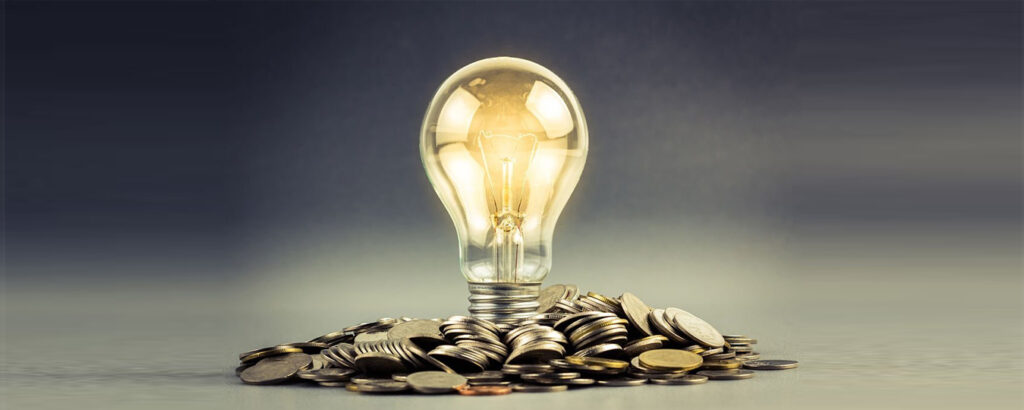
“My heart was always on ideas. I come from an advertising background and I studied marketing. I was always an ideas person.So I have been investing in businesses since 2015-16. That is when my investment journey started. My father has been an Ethik customer since 2012-13 and he was sold on the products. He used to love Ethik products and every time he came to Bangalore, he would pick up a lot of stuff from the store and he would come and give it to all of us in the family.”
“And then Pankaj, the original founder of Ethik, decided he wanted to scale up Ethik, he happened to speak to my dad and they were looking for investments. But they were also looking for someone strategic to come into the place. Pankaj is very clear that I don’t just want the money from someone because there is only so much deep that someone’s pockets can be. So he was looking at a strategic investment. So dad happened to talk to me because I was also investing and I had a background in marketing. Now, the reason why I chose to greenlit the investment in Ethik is because I felt that this brand name, from a branding standpoint or from a marketing standpoint, has so many possibilities it is not even funny!”
“I thought this is a brand that could be catapulted into the national and the global stage as well. I also happen to be primarily a copywriter. And when you learn of a name like Ethik, you start playing with the word Ethic -there are so many commutations, there are so many extensions that you can make out of it! And I can only think of so many campaigns. And again, the interesting thing about ‘ethic’ was it is a word that everyone has heard at least once in their lives. Pretty much anyone well-versed with even basic English and even in common places, even a lot of vernacular regions have the mention of the word ethic. It is part of our constitution, it is part of our trading philosophy. It is part of so many fair play guidelines.”
“I felt that as a branding person, as an advertising person myself, I really felt that Ethik could really give me a lot to work and contribute to make it a bigger brand. And that was my selfish reason to come on board for the brand.”
Getting to know Bharat a little more intimately
We found Bharat’s Linkedin Bio to be really interesting -“Ph.D. in Failing, Falling, Learning & Rebuilding that”. We were curious and wanted to know more! He gladly shared his philosophy:
“I actually wanted this to be a nice summarization of who I am as a person and the kind of challenges that I seek as a professional. So this is not something that I believe in. This is something that I have gone through. I would just not say that this is my motto from day one because I don’t think failing is easy at all. It is natural, but I don’t think anyone wants to fail. Whenever you shoot for the staff.”
“And I think it took a lot of years, I think in the last 13 years that I started, since I started working. I think failure is something that has happened every day. Failing and falling is something that has happened every day. Success is a milestone which is reached on our particular day. And success is fleeting. It happens on a day and then it passes, and then it’s back to the grind, trying to achieve something higher or something greater or something bigger. So this is organic. This is a process which I’ve gone through, and this is something that I have made peace with. And, you know, I thought of making this my strength because I’ve had a lot of experience working with various businesses.”
On asking how Ethik has moved the human experience forward and how it matches his philosophy, he shares:
“See, at the end of the day, you’re running a business, you look at the balance sheet, you look at the PNL month in, month out and there’s hardly any time to let it absorb if you’re making any tangible difference or not. But honestly, Ethik is making that humans-to-human emotion for that matter. We’ve been able to replace leather from wardrobes when it comes to men’s wardrobes for shoes, belts and wallets. And we have been able to replace it with the same or better quality.
We have given them that alternative and now it works at an analytical level to them. And you know, leather has been used since prehistoric times. We’re talking about the Stone Age. So, to work on an emotion that is part of DNA gene lineage, since prehistoric times, to make that small but tangible difference to even 8000 lives is, you know, our way of making a difference, to making a human difference to things.”
Rapid Fire Round:
If you had to give someone a book you’ve read, which one would it be?
Tuesdays with Morrie.It’s a wonderful book. It helped me in a very critical stage of my life. When I was failing and falling a lot, ‘Tuesdays with Morrie’ just lifted me and it’s been with me ever since.
When you’re not working, how do you like to spend your time?
I am a very lazy guy. I just like to just be on my bed all the time and I would not get up for days if no one asked me to! If I’m not working, I would just want to be with my friends.
One subject you would like to learn more about.
When I was a kid, I always thought I wanted to be an archaeologist. I was so intrigued by history and it’s something that I passionately love. So you know more to do with history. It’s something that I love to explore more.
To you, what is the best age to be?
I would never want to grow up. I would just love to be, what, 13-14 all the time. And I think that’s the best age to be.
If your life was a story, what would it be titled?
Wake up Sid.
Name the people that inspire you.
Richard Branson
Learn by watching or learn by doing?
I learn by doing
If you had no money concerns, what business would you startup?
If money was not an issue, then I would just want to run an advertising agency. But I could pay for the campaigns and ideas for my clients because many times it’s a budget that is an issue or they don’t believe in the idea. And if money was really not an issue, I would pay for buying their media just to see my idea come to life.
